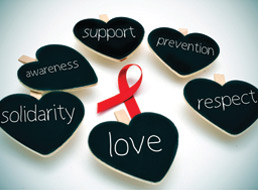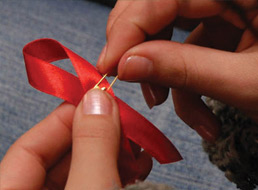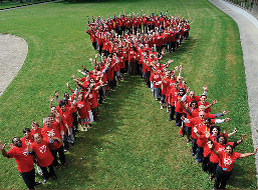The Women’s Interagency HIV Study has a number of scientific and operational working groups (WG) dedicated to advancing the science and monitoring operations of the study. WGs focus on key expertise specific areas and contribute to the design of study concepts, protocols, data collection instruments, and manuscripts, as needed. With the merger of the WIHS and the Multicenter AIDS Cohort Study (MACS) into the MACS/WIHS Combined Cohort Study (CCS) as of January 2019, many working groups have merged into a single working group.
Click the name of the WG below to view membership.
CCS Scientific Working Groups
- Aging Working Group – Studies complex characteristics of aging, to include both aging-related diseases and non-organ-specific events that are associated with age, in multiethnoracia HIV- and HIV+ men and women comprising the CCS. These characteristics include the effects of health disparities, the greater multi-morbidity in HIV+ and reproductive aging. In addition, since many HIV+ are virologically suppressed, with life expectancies similar to their HIV- counterparts, those who are suppressed provide a ‘purest’ comparison of aging processes in HIV- and HIV+ and can assist in addressing whether aging is accelerated in HIV+ and informing as to what new knowledge may be needed to answer this question. Studies the epidemiology of complex aging-related processes including physical/functional status (frailty, walking speed, balance, falls, fractures, endocrine status), mental health (depressive symptoms), the interaction between physical/functional and mental health, and healthy aging and resilience. Studies mechanisms of complex systemic aging processes comprised of the four proposed domains of the aging phenotype (body composition changes, energy balance changes and impairments, alterations in homeostasis, and peripheral and central neurodegeneration). Contributing factors will also be considered and include: organ-specific diseases; co-morbidities (type and number); inflammation and immune activation; and other potential aging processes, such as changing social support, loneliness, isolation, and disability. Interfaces with other pertinent CCS Working Groups.
- Biomarkers Working Group – Provides intellectual and technical advice on biomarker-related efforts by CCS investigators. Evaluates proposals from outside investigators requesting access to CCS specimens and/or biomarker data for soundness and overlap with existing biomarker-related projects.
- Cardiovascular (CVD) Working Group – Leads the CCS agenda of research on heart and vascular disease, stroke, and subclinical markers of cardiovascular disease. Assists with development of manuscripts and ancillary studies to understand the relationship of CVD and its risk factors with HIV infection, important comorbidities, such as Hepatitis C, and exposure to antiretroviral medications. Serves as a source of information about the design of cardiovascular studies in the CCS and related data on major CVD risk factors (e.g., lipids, blood pressure), blood, urine, and cellular makers, ‘omics data (e.g., metabolome, microbiome, genome), vascular imaging, and clinical CVD events. Monitors CVD measurement protocols in the CCS and oversees the adjudication of CVD events.
- Clinical Outcomes/Epidemiology Working Group – Reviews and adjudicates deaths and important clinical events using source medical record documentation which is aggregated at the sites and submitted as de-identified “packets for review.” Reviews submitted concept sheets for which clinical expertise is needed. Provides ongoing review and makes recommendations regarding activities performed at semi-annual study visits.
- Core Laboratory Working Group – Ensures standardization across all sites for sample collection, laboratory processing, sample analysis, and storage. Ensures assays are state-of-the-art, while maintaining consistency through time. Maintains rigorous quality control on all laboratory protocols through Quality Assurance protocols and programs. Provides interface between the DACC and all laboratories. Assists investigators with laboratory aspects of multi-site sub-studies. Conducts original laboratory-based research that fulfills and advances the specific aims of the CCS. Assists site laboratories with sample collection, processing, analysis, and storage related questions and concerns. Provides expert recommendations to the EC on laboratory aspects on all projects.
- Data Analysis/Methods Working Group – Advises on maximizing data quality, decides on standardized summary metrics, monitors and maintains study design and analytic appropriateness for proposed research, disseminates analytic/methodologic best practices, and leads methodological development.
- Genomics Working Group – Oversees the study of host genomic (e.g., genetic, epigenetic, gene expression) data of CCS study participants. Provides expert feedback on proposed and in-progress scientific genomic-related activities.
- Gynecology Working Group – Coordinates studies assessing the effect of menopause. Evaluates the effect of effective contraception.
- Human Papilloma Virus (HPV) Working Group – Specializes in cervical, oral and anal HPV infection and disease. Monitors progress of HPV-related R01s in the CCS and shares results.
- Liver Working Group – Assesses the interplay of HIV and liver disease from viral hepatitis and fatty liver on various outcomes including HIV, liver, cardiovascular, behavioral, metabolic, neurocognition, pulmonary, and renal.
- Malignancy Working Group – Oversees the identification, tissue collection, adjudication, and analysis of cancers that occur in the CCS study participants. Provides expert feedback on proposed and in-progress scientific cancer-related activities.
- Metabolic Working Group – Supports research and provides expertise in areas relating to and affected by endocrine and metabolic disorders in adults living with and at risk for HIV infection. Areas falling under the primary purview of the Metabolic Working Group include dyslipidemia, disorders of insulin and glucose homeostasis, body composition (including obesity, lipodystrophy, and visceral adiposity), bone metabolism and fractures, and sex hormone disturbances (including menopause and male hypogonadism). Strives to provide support and expertise to the other working groups that advance the Unified Scientific Agenda, for whom metabolic issues play a critical role in the development or progression of disease. Examples include, but are not limited to, hepatic steatosis, cardiovascular disease, aging, cognitive function, cancer, and the psychosocial determinants and effects of these comorbid conditions. Supports development of guidelines for ascertainment of clinical events and the mentoring of junior investigators.
- Microbiome Working Group – Develops SOPs for collection and processing of stool, oral, and cervicovaginal samples for microbiome analysis and bioinformatics approaches for data analysis. Responsible for the evaluation of proposed microbiome studies in the CCS cohort. Works to develop new concepts and scientific/health aims that utilize stored microbiome samples.
- Neuropsychology Working Group – Assesses the interaction between HIV status, psychosocial moderators, medical comorbidities, and biomarkers on brain structure and cognition and its impact on everyday function.
- Pharmacology Working Group – Studies the pharmacokinetics, adverse events, and utilization of antiretroviral drugs in CCS participants, including measuring hair concentrations as markers of viral suppression and adherence. Advises related working groups with interest in drug disposition on analytical methods and data analysis techniques, and provides feedback and suggestions to investigators looking to use the CCS sample repository to answer relevant pharmacology questions in men and women. Working group members have expertise in measuring drug concentrations in plasma, peripheral blood mononuclear cells, hair, and the male and female genital tracts, and are well-versed in noncompartmental and population pharmacokinetic analyses.
- Pregnancy Working Group – Assesses the association of pregnancy outcomes with maternal health markers and studies the interaction between mental health and substance abuse with pregnancy outcomes, maternal health markers, immunologic and virologic response to HAART, and quality of life/post-partum mental health/functional status.
- Psychosocial Behavioral Working Group – Provides guidance into research utilizing psychosocial and behavioral aims, including drug use, ARV adherence, depression and other psychological diagnoses, quality of life, sexual behavior, and successful aging with HIV.
- Pulmonary Working Group – Investigates factors that impact pulmonary function in HIV-seropositive and HIV-seronegative individuals in the CCS. Performs research defining changes in pulmonary function and respiratory symptoms that are associated with HIV, its co-morbidities, and its treatment.
- Renal Working Group – Spearheads projects, provides guidance to investigators, and fosters collaboration for research focused on kidney disease and its related complications in persons living with or at risk for HIV.
- Viral and Immune Pathogenesis Working Group – Supports basic and translational research in broad areas relating to HIV pathogenesis, virology, and immunology. Specific areas of research in this Working Group include HIV persistence, latency, and reservoirs; mucosal and systemic factors affecting HIV transmission, acquisition, and diseases progression; and the pathogenesis of HIV-associated inflammation. This Working Group works with other relevant working groups to provide support and expertise for development of procedures related to specimen collection and testing for blood and tissue studies. Provides feedback to investigators seeking to utilize CCS for the above scientific areas, including mentoring of junior investigators.
CCS Operational Working Groups
- CCS Specimen Allocation Committee (CSAC) – Description forthcoming.
- Data Management Working Group – Oversees all aspects of data collection and editing, ensuring that data collection standards are upheld across all sites. Typical discussion topics include data freezes and edits, summary file updates, central data transfers, and Apollo reports.
- Project Directors Working Group – Discusses operational aspects of the MACS and WIHS, such as form and protocol revisions, sub-study feasibility and implementation, registry match status, budgets, certification and quality assurance, and the activities of the scientific research groups and their impact on clinical operations.




